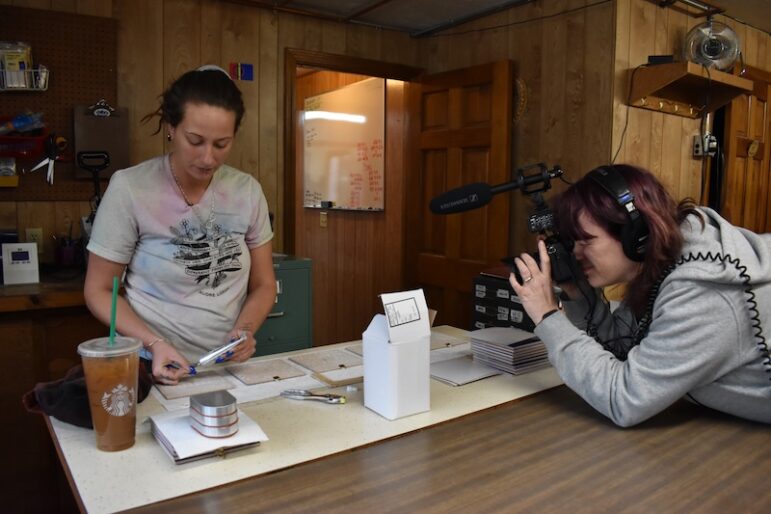
Watertown may not resemble Hollywood. There’s no giant white sign on a hill, no people in knock-off Elmo suits trying to hassle tourists for photos, no bus tours of famous people’s driveways. But believe it or not, Watertown has its own little Hollywood row. Four filmmakers here are documenting stories of family, recovery, civic life, and identity.
Allie Humenuk, Sandra Jaffe, Margo Guernsey, and Lisa Olivieri have each found not just a place to live, but a creative haven, proving that you don’t need to be in New York or Los Angeles to create films that resonate on the national stage.
“I’ve only been in Watertown for about eight years, and I love it,” said cinematographer and director Humenuk. “There’s a certain grit here that I like. The people are interesting. My street has a couple of filmmakers on it. We all take care of each other’s yards.”
Humenuk described her work as deeply personal.
“Any film I’ve made is because I’ve fallen in love with someone’s story.”
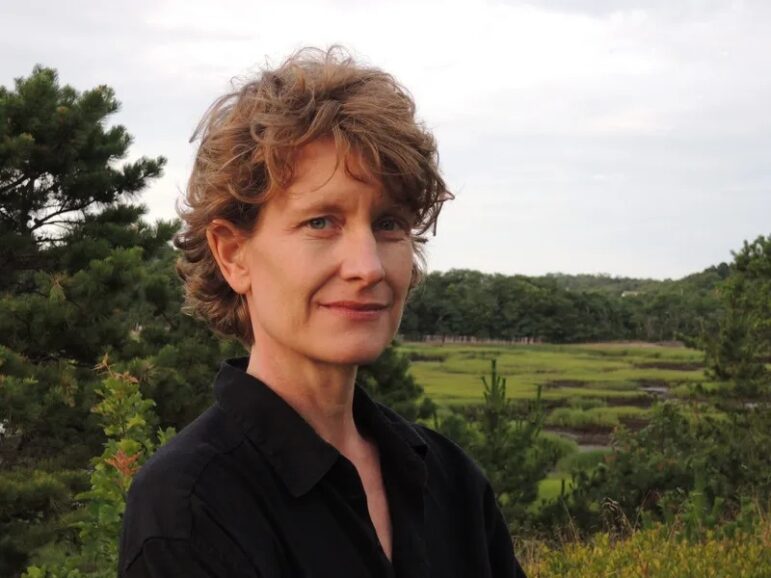
A recent screening at West Newton Cinema featured two of her feature-length documentaries: The Guys Next Door, a portrait of gay parenthood and surrogacy; and Shadow of the House, a profile of immigration and exile from Cuba. These stories continue to feel urgent today.
“The immigrant story is more charged now than when I made it,” she said. “And surrogacy … it’s still so misunderstood.”
The Guys Next Door, completed in 2016, follows a gay couple raising children via surrogacy. Humenuk shot it before national marriage equality passed and completed it just as Maine legalized gay marriage.
“I thought we would have progressed further [since then],” Humenuk reflects. “After the screening, two young men came up to me. They told me they were trying to have a baby via surrogate, and they were still getting the same outdated questions: ‘Who’s going to be the mother?’ ‘What if it’s a girl?’ ‘How will you know how to comb her hair?’ It’s still happening.”
Shadow of the House follows renowned photographer Abelardo “Abe” Morell over the course of seven years as he reconnects with his homeland Cuba after a lifetime in exile. His family fled after it became clear his father, a coast guard official, would have been murdered by the Castro regime.
“He left at 14 and never went back,” said Humenuk. “The immigrant experience has always been part of America, but it’s more charged now. That film resonates even more today.”
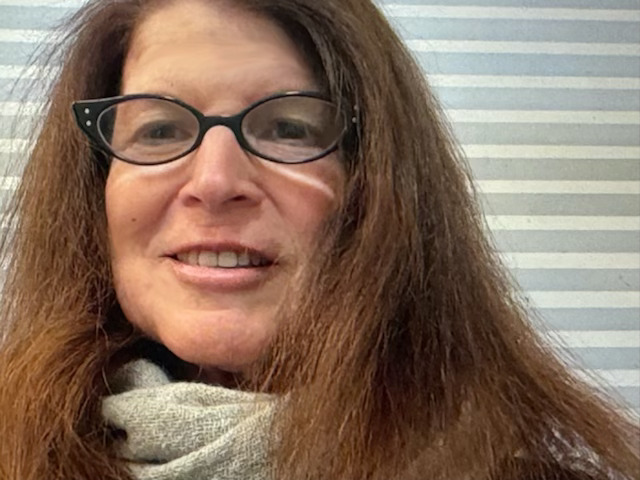
Sandy Jaffe has called Watertown home since 1987 and has watched the landscape of filmmaking shift dramatically. Her 2008 documentary Our Mockingbird was broadcast on PBS and garnered national attention. It chronicles Black and white high school students from two separate schools in Alabama coming together to perform the classic play To Kill a Mockingbird. It took Jaffe 10 years to finish. But in the end, it was worth it.
“The nice thing about it taking so long,” she said, “is I got to interview John Lewis. You don’t plan for those gifts.”
For Margo Guernsey, Watertown is both home base and launch pad.
“The most powerful thing is to make films about your people and where you’re from,” she said. “There are so many filmmakers here. One of my favorite screenings ever was just at the local library.”
Guernsey is a producer and director who teaches at Emerson College. Raised in Western Mass, she returned to the state after working as a union organizer and earning a degree in history.
“I realized if I stayed in academia, I’d be writing for a small audience. I wanted to be engaged with the public in a more civic way,” she said.
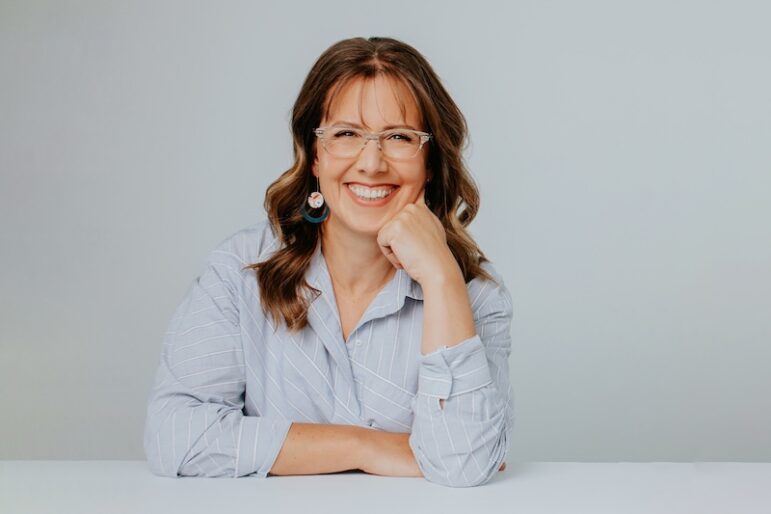
Guernsey’s recent films are deeply rooted in democracy and the hidden systems that make it work. No Time to Fail, her feature-length documentary, and its companion short The Officials, highlight the lives of election workers during the 2020 pandemic. The Officials is now streaming at Time.com.
“I’m interested in unseen labor,” she explains. “Who keeps democracy running when no one’s looking?
“People didn’t even know what election officials did until COVID hit,” Guernsey said. “These are people whose work is essential to our democracy, and they were being harassed, threatened. Our film gave them a voice.”
Guernsey also teaches producing and emphasizes civic engagement through storytelling.
“Each film is like starting a new business,” she tells her students. “It’s what makes art happen.”
Amid rising corporatization in streaming, she’s shifting toward shorter, more community-based projects, and toward teaching.
“My students have so much energy for storytelling,” She said. “It gives me hope. They want to change the world.”
Lisa Olivieri, who teaches video and photography at Natick High School, has also found Watertown to be a nurturing creative environment. Her new documentary Recovery City follows four women in Central Mass navigating life in the various sides of long-term recovery from addiction. The film recently won the audience award at the Provincetown International Film Festival and is touring health departments, peer recovery centers, and nursing schools across the country.
Filming independently, Olivieri had to build deep trust with her subjects.
“Recovery is about agency and meeting people where they’re at. That’s what makes it work,” she said.
“I didn’t want to make an exploitative film,” she continued. “The main character [who now goes by Six and identifies as non-binary] was newly in recovery, and that’s a vulnerable place.”
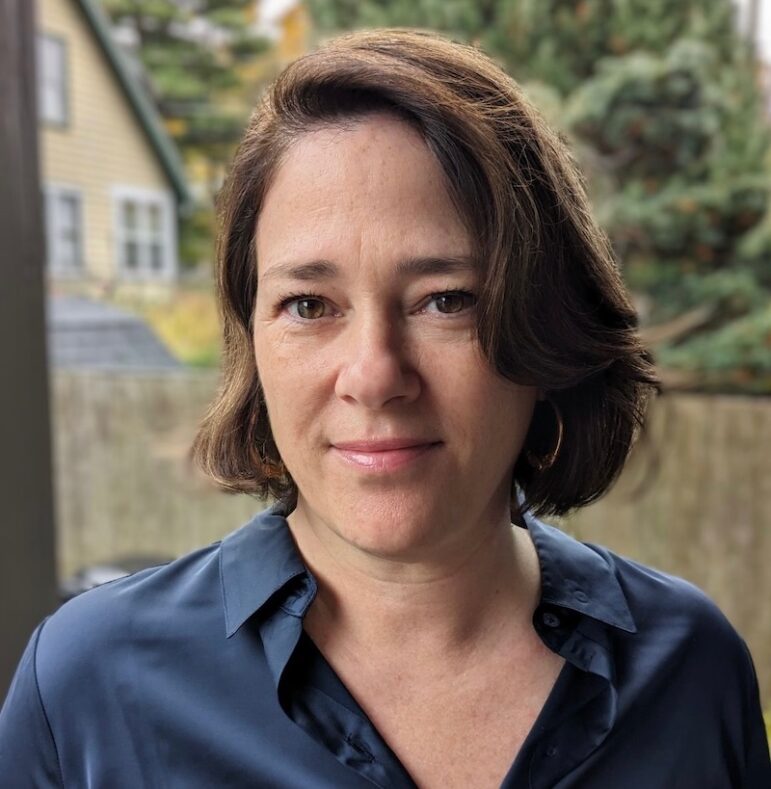
Watertown may not be branded as a creative capital, but for these filmmakers, it offers something rarer: a community where their lives, work, and values can coexist.
“In L.A. or N.Y., the pace of life would just be too fast,” Humenuk said. “I didn’t consciously choose to stay here, but one job led to another. The people kept me.”
Despite their varied subjects, what unites these filmmakers is not just geography, but purpose. They work small, teach often, and collaborate where they live.
“You don’t have to be in the industry center anymore,” said Jaffe. “It used to be that you had to live in L.A. or New York. Now you can live in Watertown and still tell stories that matter.”
I can only wonder how these independant artists are able to afford to live in the million dollar properties and exhorbitant rental market of Watertown. Power to all the filmmakers for either being independantly wealthy or having deep pocketed patrons.
Wouldn’t it be great to have a Watertown Documentary Film Festival. We could feature these local filmmakers’ works.
Great article …
@Maya Shwayder … thanks for putting it togetrer
@ Charlie … thanks for sharing it.